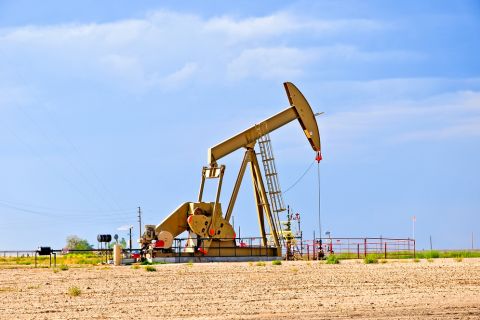Receiving U.S. approval to export U.S. natural gas as LNG is only one, possibly very small, step toward commercializing excess U.S. supply, according to Brian Specter, managing director, structured products, for BP Plc.
“Today, clearly natural gas has a much dearer home in Asia and in Europe where native energy prices are much, much higher,” Specter told Oil Council meeting attendees in New York recently.
“So I think gas will continue to be looked at to be pushed offshore. If the capital is put in and the ability to export it is there and the market remains there, then absolutely you can get more gas out of the shales, but I don’t think you can look at it just in terms of all of a sudden you can send it offshore so now you have a market there.”
Specter says talk of environmental regulation in the U.S. via a carbon tax, for example, bodes well for U.S. natural gas supply, which will create more demand domestically and strengthen prices. Meanwhile, carbon regimes in Europe will affect demand there.
A great deal is in flux in the midst of a very long-term proposition, such as building gasification facilities and securing contracts for delivery.
“You have to really put a different hat on when you look at the way LNG is priced because most of the rest of the world doesn’t look at gas supply the way we do. For them that gas supply is almost like coal. It’s a long-term commitment. There’s a large capital expenditure (on import facilities) in the front end of it. They’re willing to invest in it for the long term.”
In the U.S., natural gas pricing is possibly one of the most liquid commodity markets in the world, and derisking a long-term investment is easier. “It’s very liquid and it makes it easy for producers to do their investing because they can come to folks like BP and lay off this risk (through hedges). The LNG market is just fundamentally very different.”
Also, Qatar and other LNG producers are difficult to compete with; for these, the LNG they export has no domestic market. “It’s a commodity they’re pulling out of the ground and, in the case of some gas producers, it’s wrong to say it’s a byproduct, but let’s just say the condensate that is being yielded off some of these gas fields that are doing LNG is much more valuable than the LNG that they’re putting out today, so the economics of oil play a lot into it as well.”
–Nissa Darbonne, Editor-at-Large, Oil and Gas Investor, OilandGasInvestor.com, OilandGasInvestor.com Today, Oil and Gas Investor This Week, A&D Watch, A-Dcenter.com, UGcenter.com. Contact Nissa at ndarbonne@hartenergy.com.
Recommended Reading
D-J’s Elevation Midstream, ARB Midstream Subsidiary to Merge
2024-07-08 - Elevation Midstream and Platte River Holdings, a subsidiary of ARB Midstream, are merging to create a D-J Basin midstream company of scale.
Martin Resource Offers to Buy Spinoff Martin Midstream for $100.3MM
2024-05-27 - Martin Resource Management created Martin Midstream through an IPO in 2002.
Evolution Petroleum Sees Production Uplift from SCOOP/STACK Deals
2024-05-07 - Evolution Petroleum said the company added 300 gross undeveloped locations and more than a dozen DUCs.
Exxon Mobil Selling Malaysia Oil, Gas Assets to Petronas - Sources
2024-07-19 - Exxon Mobil, which last year marked its 130th year in Malaysia, has been trying to sell its upstream assets in the country since 2020.
Diamondback, Five Point JV Buys More Midland Water Infrastructure
2024-06-03 - Deep Blue, the joint venture between Diamondback Energy and Five Point Energy, has acquired pipeline and hundreds of thousands of barrels of water disposal capacity from Lagoon Operating Midland.




